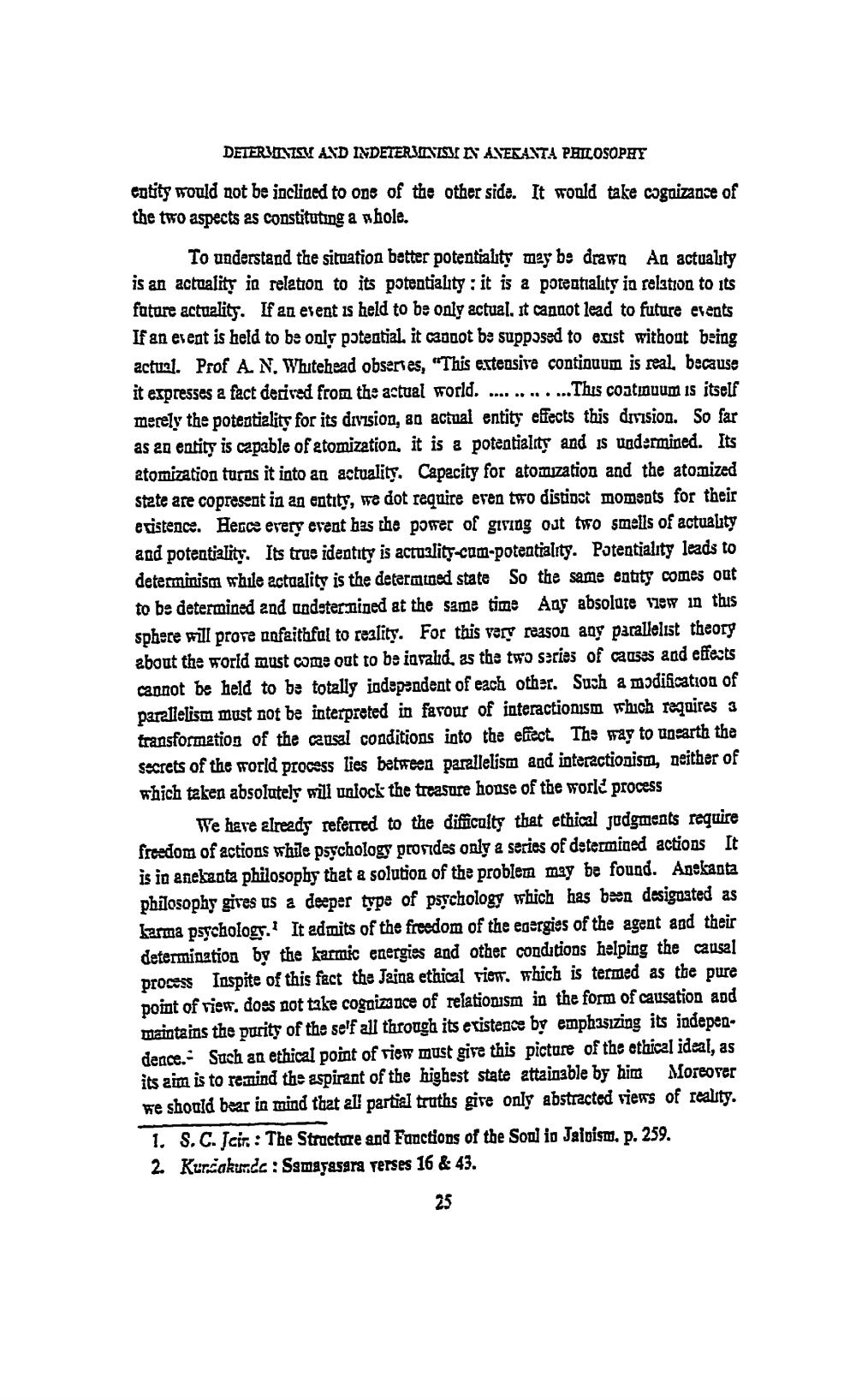________________
DETERMINTSU AND INDETERJINSY I ANEKANTA PHILOSOPHY
entity would not be inclined to one of the other side. It would take cognizance of the two aspects as constituting a whole.
To understand the situation better potentiality may be drawn An actuality is an actuality in relation to its potentiality : it is a potentiality in relation to its fatare actuality. If an event is held to be only actual, it cannot lead to future events If an event is held to be only potential. it cannot be supposed to exist without being actual. Prof A N. Whitehead obsertes, "This extensive continuum is real, because it expresses a fact derived from the actual world. ............ This coatinuum is itself merely the potentiality for its division, an actual entity effects this division. So far as 20 entity is capable of atomization, it is a potentiality and is undermined. Its atomization turns it into an actuality. Capacity for atomization and the atomized state are copresent in an entity, we dot regnire eren two distinct moments for their existence. Hence every event has the power of giving out two smells of actuality and potentiality. Its true identity is actuality-com-potentiality. Potentiality leads to determinism while actuality is the determined state So the same entity comes out to be determined and undetermined at the same time Any absolute view in this sphere will prove anfaithful to reality. For this very reason any parallelist theory about the world must come out to be iasald, as the two series of causes and effects cannot be held to be totally independent of each other. Such a modification of parallelism must not be interpreted in favour of interactionism which requires 3 transformation of the cisl conditions into the effect. The way to unearth the secrets of the world process lies between parallelism and interactionisu, neither of which taken absolutels will unlock the treasure house of the worl process
We have already referred to the difficulty that ethical judgments require freedom of actions while psychology prondes only a series of determined actions It is in anekanta philosophy that a solution of the problem may be found. Anekanta philosophy gives us a deeper type of psychology which has been designated as karma psychologs.' It admits of the freedom of the energies of the agent and their determination by the karmic energies and other conditions helping the causal process Inspite of this fact the Jaina ethical view. which is termed as the pure point of view, does not take cognizance of relationism in the form of causation and maintains the purity of the self all through its existence by emphasizing its independeace. Such an ethical point of view must give this picture of the ethical ideal, as its aim is to remind the aspirant of the highest state attainable by him Moreover we should bear in mind that all partial truths gire only abstracted views of reality. 1. S.C. Tcir: The Structure and Functions of the Soul io Jainism, p. 259. 2. Kurzakurda: Samayasara rerses 16 & 43.




